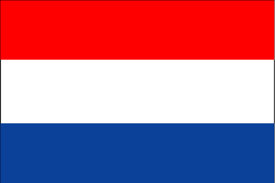记忆方法
将“Dutch”与“do it myself”或“just do it”这样的口号结合记忆。想象自己穿着荷兰传统服饰,大声说出“Dutch”的同时做出决心和自信的手势,帮助自己记住这个单词,意味着“荷兰人的”或“荷兰的”。
以上内容由AI生成, 仅供参考和借鉴
中文词源
Dutch 荷兰的
来自PIE*teuta, 人民,民族,词源同Deutsch,Teutonic.在14世纪前用于日耳曼通称,在16世纪后指荷兰。
英语词源
- Dutch (adj.)
- late 14c., used first of Germans generally, after c. 1600 of Hollanders, from Middle Dutch duutsch, from Old High German duit-isc, corresponding to Old English þeodisc "belonging to the people," used especially of the common language of Germanic people, from þeod "people, race, nation," from Proto-Germanic *theudo "popular, national" (see Teutonic), from PIE root *teuta- "people" (cognates: Old Irish tuoth "people," Old Lithuanian tauta "people," Old Prussian tauto "country," Oscan touto "community").
As a language name, first recorded as Latin theodice, 786 C.E. in correspondence between Charlemagne's court and the Pope, in reference to a synodical conference in Mercia; thus it refers to Old English. First reference to the German language (as opposed to a Germanic one) is two years later. The sense was extended from the language to the people who spoke it (in German, Diutisklant, ancestor of Deutschland, was in use by 13c.).
Sense narrowed to "of the Netherlands" in 17c., after they became a united, independent state and the focus of English attention and rivalry. In Holland, Duits (formerly duitsch) is used of the people of Germany. The Middle English sense survives in Pennsylvania Dutch, name of the people who immigrated from the Rhineland and Switzerland.
Since c. 1600, Dutch (adj.) has been a "pejorative label pinned by English speakers on almost anything they regard as inferior, irregular, or contrary to 'normal' (i.e., their own) practice" [Rawson]. E.g. Dutch treat (1887), Dutch uncle (1838), etc. -- probably exceeded in such usage only by Indian and Irish -- reflecting first British commercial and military rivalry and later heavy German immigration to U.S.The Dutch themselves spoke English well enough to understand the unsavory connotations of the label and in 1934 Dutch officials were ordered by their government to stop using the term Dutch. Instead, they were to rewrite their sentences so as to employ the official The Netherlands. [Rawson]
Dutch oven is from 1769; OED lists it among the words describing things from Holland, but perhaps it is here used in the slighting sense. Dutch elm disease (1927) so called because it was first discovered in Holland (caused by fungus Ceratocystis ulmi).
权威例句
- 1. You'll be amazed at the culinary creations possible in a Dutch oven.
- 荷兰烤箱能够做的食物之多会让你感到惊奇。
- 2. A Dutch newspaper photographed the president waiting forlornly in the rain.
- 一份荷兰报纸拍到了总统形单影只地在雨中等待的照片。
- 3. The old Dutch fort with its thick high walls looks virtually impregnable.
- 古老的荷兰城堡城墙又厚又高,看起来几乎固若金汤。
- 4. Dutch colonial authorities imprisoned him for his part in the independence movement.
- 荷兰殖民当局因他参加独立运动而把他关押了起来。
- 5. Dutch police told off two of the gang, aged 10 and 11.
- 荷兰警方对一帮小混混中的两个人进行了训诫,他们一个10岁,另一个11岁。

